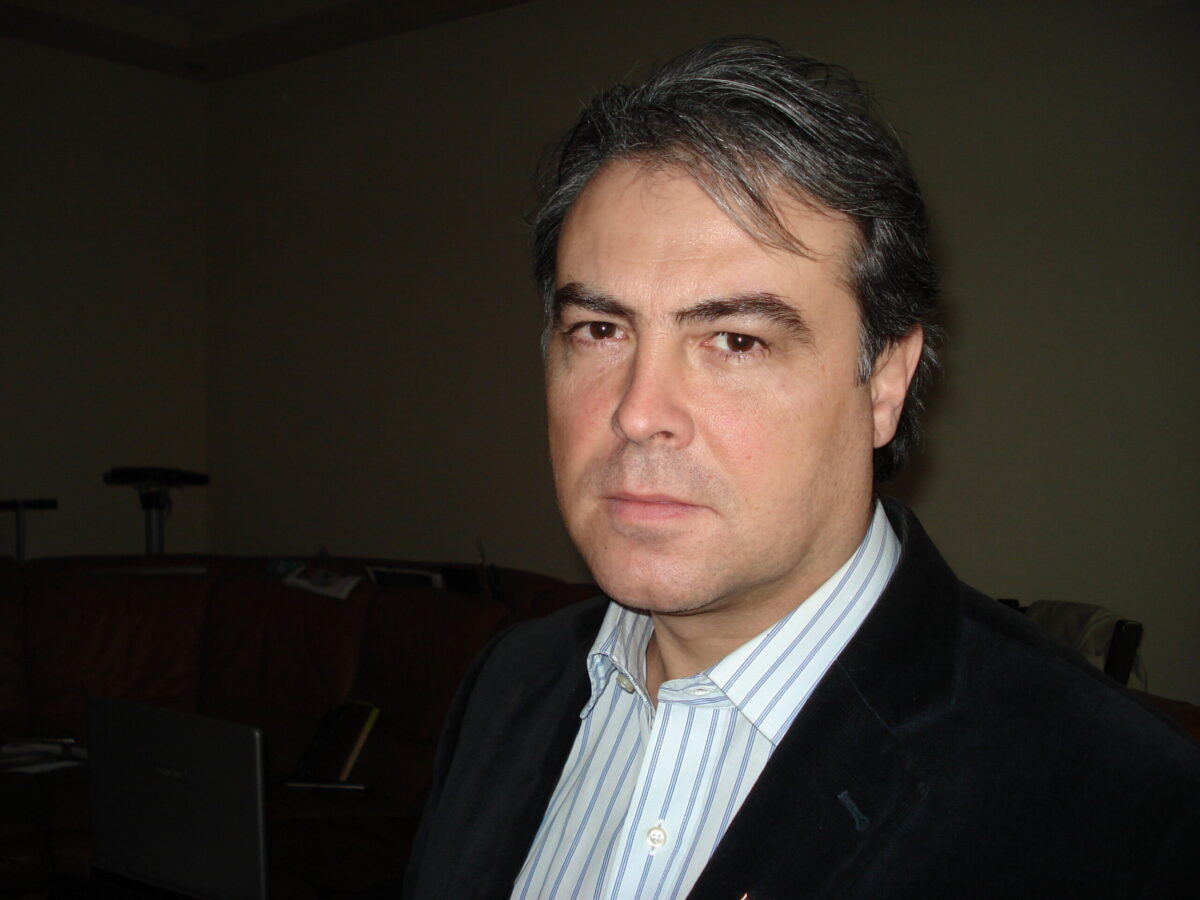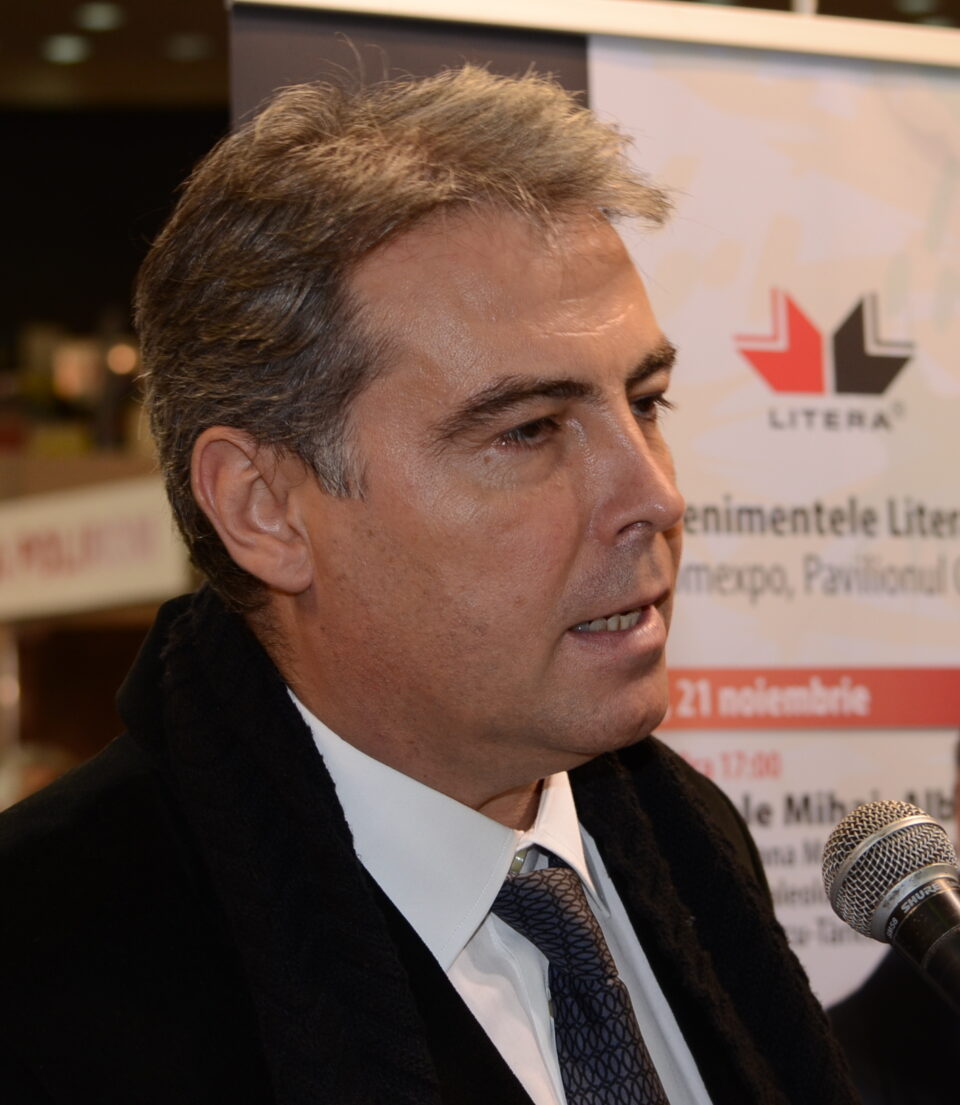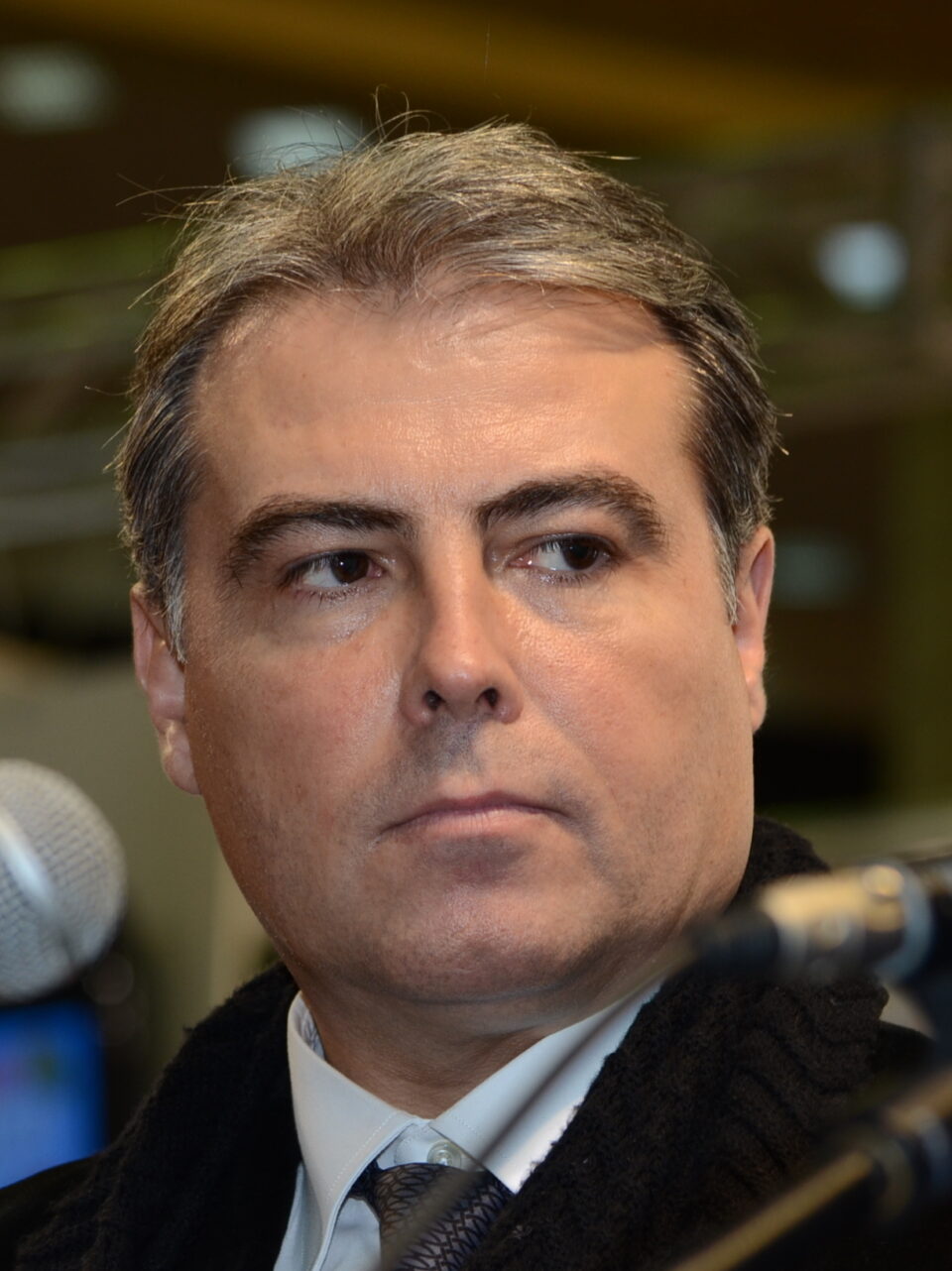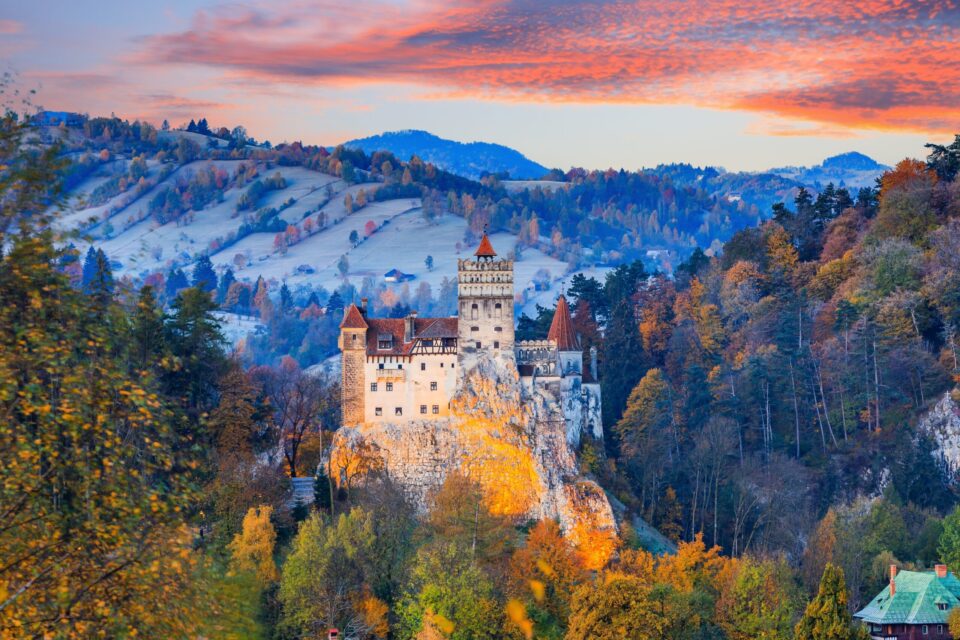Eastern Yearning for the West is Common to Serbia and Romania
 A historian, politician, essayist, and former UNESCO Ambassador, Professor Adrian Cioroianu reflects upon where Romanians and Serbians, independently and together, stand nowadays and how they got there.
A historian, politician, essayist, and former UNESCO Ambassador, Professor Adrian Cioroianu reflects upon where Romanians and Serbians, independently and together, stand nowadays and how they got there.
By: Andrej Klemenčič
How did an Italic language land so far in the East?
How the Latin language arrived on the territory of today’s Romania is clear: through the expansion of the Roman Empire and at the end of several wars against the Dacians, at the beginning of the 2nd century A.D. But the real question is not how the Latin language got here, but how this Romanic dialect was preserved in our area.
Do Romanians, given this peculiar language situation, feel isolated, geographically speaking? Living in Spain, one can easily notice that Romanians, once they move there, feel almost immediately at home.
No, I don’t think Romanians feel isolated, because it wouldn’t do any good anyway. I think all of us, the Romanians as well as the Serbs, would like to be a little „more to the West” but the truth is that no people can escape from their geography. I would say that the Romanians are not afraid of all of their Slavic neighbours – or, to put it more directly, the only Slavs who were a threat in our modern history were the Russians, but not only for us. Indeed, Romanians feel very much at home in Italy or Spain and I think that the main element of this „familiarity” is the language. An average educated Romanian needs a few months to learn basic Italian or Spanish. Even in Romanian, you can build sentences using only words of Latin origin and then, you can make yourself understood by a Spanish or Italian. But, in the current language, obviously, the Romanian language also has Slavic, Turkish, and Hungarian words. As I said, geography matters.
No people can escape from their geography
What was the birth of what is now called the Romanian nation?
The Romanian people are old, but the Romanian nation, in the modern sense of the term, is much younger. In the Middle Ages, Romanians identified themselves as “Romanians” based on the language they spoke, regardless of whether they lived in different states, such as Moldova, Wallachia, Transylvania, or various other areas in the Balkans. For example, the Romanians never called themselves Wallachians – this is an appellation from outside. The claim of the Romanians as a nation began massively in the 18th century, in Transylvania, as a defence reaction against the official Hungarianization policy there. Given that Romanians, in the Habsburg Empire, were seen as second-rate people, due to their Orthodox religion, in the first place, the Romanian elite defended themselves by citing their ancestral Latin origin.
 How did Vlad III end up in a book about vampires? In Romania, he is known as sort of a hero for keeping the Turks out of the country. Yet, in the Western subconsciousness, it is because of him that Romania is perceived as a somewhat dark place. What was his story?
How did Vlad III end up in a book about vampires? In Romania, he is known as sort of a hero for keeping the Turks out of the country. Yet, in the Western subconsciousness, it is because of him that Romania is perceived as a somewhat dark place. What was his story?
Vlad III, known as Vlad the Impaler, is a fascinating historical figure. First of all, he was a mid-15th-century Romanian ruler who did indeed fight against the Turks. But his dark fame is due in large part to the bad relations he had with the Saxon merchants of Transylvania. As he imposed certain taxes on them, they started a fierce counter-propaganda, according to which Vlad was almost mad, bloodthirsty, diabolical leader. In 1897, the Irish writer Bram Stoker translated these legends into the novel Dracula and that is how this myth was born – a myth which, today, is a successful marketing campaign for Transylvania, in particular, and for Romania, in a wider sense.
We touched upon how a nation can feel isolated in this part of the world, but could we go as far as to say that this part of Europe has been somewhat isolated from Europe itself? Is this due to some kind of fear of easternness and where would one find root for such a sentiment?
Yes, I think that all of us, the easterners have this feeling of isolation, and the explanation lies in our history and, above all, in the former sphere of influence of the Ottoman Empire, then the Soviet Union, and so forth. In the case of Romanians, this feeling dominated the intellectual debates in the 19th and 20th centuries. In the 1980s, in the era of Nicolae Ceaușescu, a character in a novel by the Romanian writer Constantin Țoiu said in French „les Roumains sont des européens mal placés”, that is, „Romanians are Europeans badly placed”. I also dealt with this subject, in a study in which I wrote about a continuous attempt of the Romanians, in the last two centuries, to „escape” from the Balkans.
The European Union will be increasingly integrated
 Do you feel that this common sense of rejection, if that wording is not too strong, is something that unites or should bring closer the people of South-East Europe?
Do you feel that this common sense of rejection, if that wording is not too strong, is something that unites or should bring closer the people of South-East Europe?
We Easterners should be a bit more solidary among ourselves. First of all, because our historical destiny was often shared. For example, an average Romanian knows the history of France or England better than that of neighbouring countries, such as Serbia or Bulgaria. Likewise, I think that an average Serb knows more about Italy or Germany than about Romania. This seems unfortunate to me, and we all are probably missing out on opportunities that don’t even cross our minds.
Speaking of uniting, Romanians have a very positive perception of Serbia, and there is even a saying that Romania has only two true friends: Serbia and the Black Sea. How did this saying come to be? Why Serbia? What is it that, from the Romanian perspective, binds these two nations?
To be fair, Serbia is the only country in our neighborhood with which we have not had a conflict – and I think this is where the real sympathy that many Romanians feel towards the Serbs comes from. I remember that in my grandparents’ village in South-West Romania, on the banks of the Danube, the romantic image of Serbian and Bulgarian outlaws who fought against the Ottomans and sometimes crossed the Danube into Romania persisted even in the 20th century. When I was a child, in the 80s, I watched more of the Yugoslav television than the Romanian one and Lepa Brena was part of my growing up. In the summer I would go to the „Serbian market” in Drobeta Turnu Severin, and buy „guma za žvakanje”, and my parents appreciated Vegeta spices or Serbian cigarettes. But, on the other hand, also in the village of my grandparents, something else was said: „A wise Serb and a green horse have never been seen.”, this refers to the stubbornness of the Serbs, which is sometimes beneficial, sometimes not.
Have you had any chance to look into how Serbs perceive Romania and the Romanians? What are your impressions?
Yes, I think that broadly speaking, Serbs also sympathize with Romanians, but it probably also depends on the region of Serbia. In Romania also, Serbs are better known and more liked in the South of the country than in the North. As a foreign minister, I was invited in 2007 by my Serbian counterpart, Vuk Jeremić, to speak in front of the diplomats from Belgrade. I was honoured and I think we understood each other perfectly. From a diplomatic point of view, we have only one subject of discord: in Bucharest, we do not understand why our Serbian neighbors call the Romanophones from the Balkans “Wallachians” and not “Romanians”. Otherwise, I think that most Romanians are surprised when they find out that Serbs are much more Russophile than the Romanians.
We are witnessing a challenge to the Western narrative, but this challenge is cyclical
Your academic work has touched upon the role of dictatorship in Romania. When I talk to Romanians, they would frequently emphasize the brutality of the regime. What kind of an imprint has this left on the Romanian soul, you think, and how would this be mirrored in day-to-day life?
Honestly, I believe that Romanians, as a people, are hard to lead. We are individualists, we have greater confidence in our families than in institutions, and submission to authority is more often declarative than effective. As a historian, I am convinced that this is the reason why, in Romania, the communist regime began, in 1945-1948, by scaring the society – precisely to anesthetize the independent thinking of individuals. Of course, the communist regime had many common features in all the Eastern countries. But, comparing the communist regime in East Germany and the one in Romania, I realized that the Romanians are much harder to drive – because they are less disciplined, nonconformists, more willing to favour negotiation rather than the firm contract, and more capable of concealment. In a way, this ability to cover up or say one thing at home and a completely different thing at work, even if it is not morally correct, has saved us during the decades of the communist regime. My opinion, as a historian, is that the communist regime hasn’t changed the morals in Romania, but rather our morals and traditions have shaped the local communist regime. And I think this is true for Serbia, as well.
In what way has this underprivilegedness of the societies of the East been seized as an opportunity and what do you perceive their political and economic role might be, now that the world seems to have entered an era of a somewhat more polyphonic narrative, where the Western set of beliefs is observed from a variety of new perspectives if not altogether questioned?
In my opinion, Romania’s accession to NATO in 2004 and then to the European Union in 2007 represent stages of historical importance for my country. In the years 1986-1987, as I said, I was watching the Yugoslav television and I remember how the Yugoslavs were discussing, then, about the chances of the Dinar joining the European Common Currency and such. At that time, the Serbs were light-years away in front of the Romanians, in their relationship with the generic West. Of course, today, in many spaces, we are witnessing a challenge to the Western narrative, but this challenge is cyclical. I believe that we’ll enter again an „era of empires”, in which great powers, or regional powers, such as the United States, China, India, Russia, Iran, and so on will develop their narratives. And the European Union will have to act as such, as an entity because no longer are France, Germany, or England strong enough to determine world geopolitics. Therefore, I think the European Union will be increasingly integrated, to count as a political actor in the following decades. The partnership between the European Union and the United States will continue in the foreseeable future.
We do not yet have the instincts necessary to preserve or develop our heritage
As the former ambassador to UNESCO, do you feel that the Eastern part of the Roman Empire has been given sufficient credit when it comes to the number of monuments and the size of the protected area and how are the Romanians and the residents of Serbia treating this heritage?
Neither the Romanians nor the Serbs have that culture of the heritage that the French or the Northern states have, for example. We are young states and we do not yet have the instincts necessary for preserving or developing our heritage. What I say is not a criticism, but a historical conclusion. I am convinced, on the other hand, that the situation now, in the ministries in Bucharest or Belgrade, is better than a hundred years ago. To give you an example: numerous museums or libraries in Romania have not yet completed the inventory of their pieces; so, technically speaking, the Romanians still do not know the complete value of their national heritage. As an ambassador to UNESCO, I was informed by my colleagues from Serbia about the Orthodox churches in Kosovo, which were in danger of degradation, for various reasons. On the other hand, I know for sure that in Romania or Serbia, there are countless historical buildings whose renovation is always postponed, because our political officials have other priorities. I remain optimistic: our heritage culture is in evolution and, from one decade to another, we will be more aware of the treasures we have.









